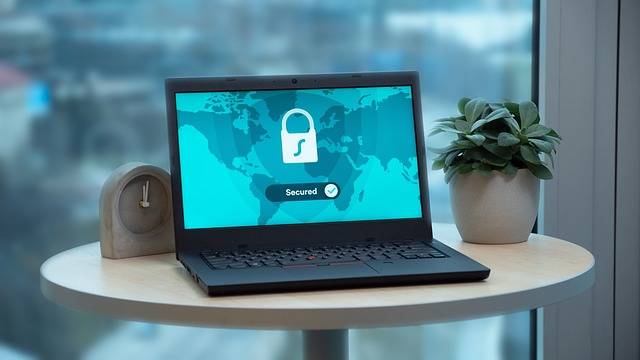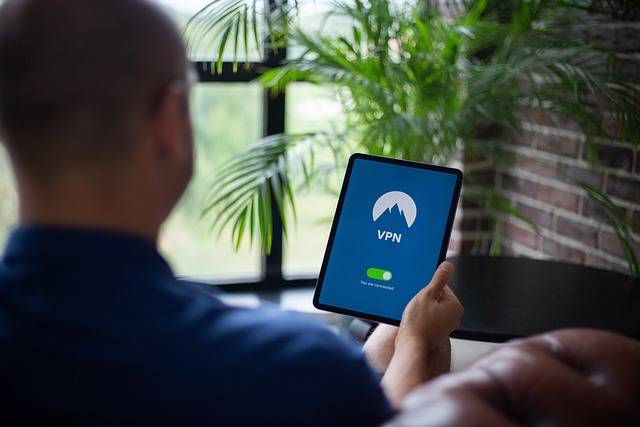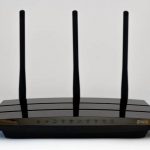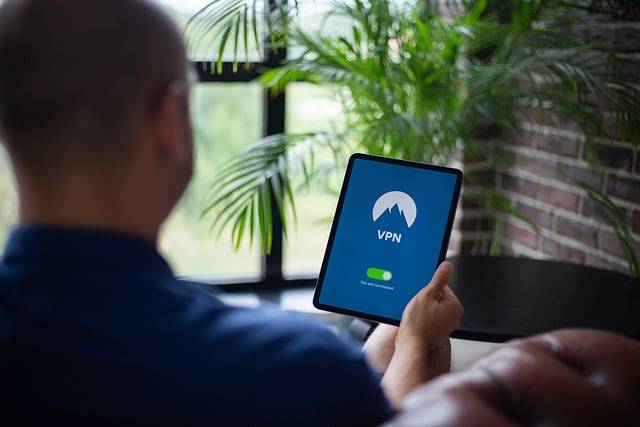Do you ever worry about your online privacy and security? Are you concerned that someone may be able to track your location or access sensitive information?
If so, then a Virtual Private Network (VPN) might be the solution for you. In this blog article, we will explore the truth behind whether VPNs can really hide your location and how they can help protect your privacy.
We’ll also discuss the benefits of using a VPN as well as any potential risks associated with relying on one to mask your location. By the end of this article, you should have all the information needed to make an informed decision about whether or not a VPN is right for you!
Table of contents: Do VPN Hide Your Location
- Uncovering the Truth: Do VPNs Really Hide Your Location?
- Is It Possible to Remain Anonymous Online with a VPN?
- How Can You Protect Your Privacy and Location with a VPN?
- Exploring the Benefits of Using a Virtual Private Network for Location Protection
- What Are the Risks of Relying on a VPN to Mask Your Location?
When it comes to protecting your online privacy, using a Virtual Private Network (VPN) is one of the most effective tools available. A VPN can help you hide your IP address and encrypt your internet traffic, making it difficult for hackers or other malicious actors to track you online. But do VPNs also hide your location?
The short answer is yes – a good quality VPN will mask both your IP address and physical location from prying eyes on the internet. When connected to a secure server, all of the data that passes through that server will be encrypted so no one can see what websites you are visiting or where in the world you are located. This means that even if someone were able to access this information they would not be able to identify who was behind it as long as they did not have access to any additional identifying information, such as an email address or phone number associated with the account being used for browsing activities.
In addition, many reputable VPN providers offer servers located in different countries around the world, which allows users further flexibility when hiding their true locations from potential snoopers on public networks like Wi-Fi hotspots at airports or coffee shops. By connecting through these servers users can appear as though they are accessing content from another country entirely while still maintaining their security and privacy online!
It’s important, however, that when selecting a provider for use with a VPN service, only those offering strong encryption protocols should be chosen; otherwise, there may still be risks associated with having sensitive data exposed while connected over public networks such as Wi-Fi hotspots mentioned earlier – especially if these connections lack adequate protection against man-in-the-middle attacks which could potentially intercept unencrypted web traffic sent across them! Additionally, some providers may also log user activity so make sure any provider selected does not keep logs before signing up, too – this way, no matter where someone is located, their true identity remains hidden away safely within cyberspace!
Uncovering the Truth: Do VPNs Really Hide Your Location?
Uncovering the truth about whether or not VPNs really hide your location is an important question to ask. With so many people using VPNs for a variety of reasons, it’s essential to know if they actually do what they say.
The short answer is yes, but there are some caveats that need to be taken into consideration. A Virtual Private Network (VPN) works by creating a secure connection between two computers over the internet and encrypting all data sent through this tunnel.
This means that any website you visit will see only the IP address of the server you’re connected to rather than your own IP address and, therefore, won’t be able to track your physical location. However, there are still ways in which websites can identify where you’re located even when using a VPN – such as checking for DNS leaks or tracking cookies from other sites on your computer – so it’s important that users take extra steps like installing anti-tracking software or clearing their browser history regularly in order to ensure complete anonymity online.
Additionally, some countries have laws banning certain types of content, which may prevent access even with a VPN enabled; these restrictions should also be taken into account when deciding whether or not using one is right for you.
Overall, while it’s true that most reputable providers offer reliable protection against revealing user locations online, no system is perfect and users should always remain vigilant about their privacy settings and security measures in order to protect themselves from potential threats while browsing the web safely behind their virtual walls!
Is It Possible to Remain Anonymous Online with a VPN?

The internet is a vast and ever-growing network of information, but it can also be a dangerous place. With the rise of cybercrime, identity theft, and data breaches, many people are looking for ways to remain anonymous online.
One way to do this is by using a Virtual Private Network (VPN). A VPN encrypts your data as it travels through the internet so that no one can access or track your activity.
It also masks your IP address so that websites cannot determine where you are located geographically. This makes it possible for you to remain completely anonymous while browsing the web or accessing any other online services.
Using a VPN will not only keep you safe from hackers and malicious actors but will also give you more control over how much information about yourself is shared with third parties such as advertisers or government agencies.
Additionally, suppose you use public Wi-Fi networks often. In that case, having a VPN in place will help protect against potential threats like man-in-the-middle attacks which could expose sensitive personal information like passwords or credit card numbers without your knowledge.
Overall, using a reliable VPN service provider is an effective way to stay secure and private when browsing the web – allowing users peace of mind knowing their activities are being kept hidden from prying eyes!
How Can You Protect Your Privacy and Location with a VPN?
A Virtual Private Network (VPN) is a great way to protect your privacy and location when browsing the internet. It encrypts all of your data, making it impossible for anyone to track you or view what websites you visit.
With a VPN, you can also hide your IP address so that no one knows where in the world you are located. Using a VPN is easy and straightforward – simply download an app from any reputable provider and connect with just one click.
Once connected, all of your online activities will be encrypted and hidden from prying eyes, allowing you to browse safely without worrying about someone tracking or monitoring your activities. By using a VPN, not only can you keep yourself safe from hackers who may try to steal personal information such as passwords or credit card numbers but you also protect yourself against government surveillance by hiding your location completely.
This means that even if the government tries to monitor what websites people are visiting in their country they won’t be able to see yours because they won’t know where it’s coming from! In addition, many providers offer additional features such as dedicated servers which allow users to access content blocked by certain countries’ governments.
Perfect for those who want unrestricted access while traveling abroad! Ultimately then, there’s no doubt that using a reliable VPN service is essential for protecting both privacy and location when browsing online – so make sure that before going online next time, take advantage of this invaluable tool!
Exploring the Benefits of Using a Virtual Private Network for Location Protection
Using a Virtual Private Network (VPN) is becoming increasingly popular for protecting your online privacy and security. A VPN allows you to connect to the internet through an encrypted tunnel, making it difficult for anyone else to track your activity or location.
This means that when you use a VPN, all of your data is kept secure from hackers and other malicious actors who are looking to steal information or gain access to sensitive data. One of the main benefits of using a VPN is its ability to protect your location from being tracked by third-party websites or services.
When connected through a VPN, all traffic appears as if it’s coming from the same IP address, regardless of where you actually are located in the world. This makes it much harder for companies and governments alike to track down individuals based on their geographical locations since they won’t be able to see what country they’re connecting from at any given time.
In addition, using a VPN can also help protect against censorship imposed by certain countries that restrict access to certain websites due to geographic restrictions, such as China’s Great Firewall, which blocks sites like Facebook and Twitter within its borders. By connecting through an overseas server with unrestricted access, users can bypass these restrictions while still maintaining their anonymity.
Overall, utilizing a virtual private network offers many advantages when it comes to protecting one’s online privacy, security, and freedom. It not only helps keep users’ personal information safe but also provides them with more control over how their data is used while allowing them greater flexibility in terms of accessing content no matter where they may be located in the world.
What Are the Risks of Relying on a VPN to Mask Your Location?

When it comes to online privacy, using a VPN is often seen as the gold standard. By masking your IP address and encrypting your data, a VPN can provide you with an extra layer of security when browsing the web.
However, there are some risks associated with relying on a VPN to hide your location that should not be overlooked. First off, no matter how secure or reliable your chosen VPN provider may be, there’s always the possibility of data leaks or other vulnerabilities that could compromise your anonymity.
If this were to happen then anyone who managed to gain access would have access to all of the information being sent through the network – including where you are located geographically speaking. Another risk is that many countries have laws in place that restrict or even ban certain types of activity while connected via a virtual private network (VPN).
This means if you use one for activities such as downloading copyrighted material without permission then you could face legal repercussions depending on where you live and what type of content was downloaded.
Finally, although most reputable providers offer strong encryption protocols and other features designed to protect user privacy; they do not guarantee 100% anonymity at all times due to factors beyond their control, such as government surveillance programs like PRISM in America, which allow agencies like NSA direct access into servers belonging major tech companies like Google and Facebook among others.







